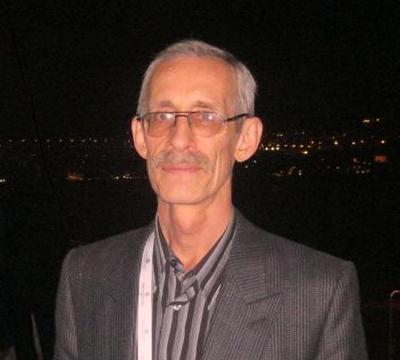1/ Why has Saudi Arabia"instead of helping Palestinian people and solving regional problem"allied with Israel and supported terrorist groups in the region?
EW: To understand this requires looking at the background to Saudi reality today, which is the subject of my book Islamic Resistance to Imperialism. The idea behind the Saudi-Pakistani-US understanding that led to the Afghan collapse in the 1990s and on to 9/11 was/is a Saudi-led hegemony in the Muslim world (acceptable to the US), where Pakistan would preside in Central Asia. What are the results of a century of Islamic rule in Saudi Arabia, and 70 years in Pakistan? In short, precious little as a guide to other Muslim nations.
Saudi Arabia (28 million), founded in 1932, and the Gulf states (10 million), which achieved 'independence' in the 1970s, claim to be the first countries in recent times to be governed by Islamic principles, at the same time satisfying the demands of empire to keep the Muslim world operating within the imperial order.
Given its prominence as guardian of the holy places and its ability to project its influence through its alliance with the US, including promoting its Wahhabi version of Islam, and financed by its immense oil wealth, it is not surprising that many Muslims look to Saudi Arabia for guidance in implementing Islam in their daily lives, and refuse to see the evil lurking behind the Saudi 'pact with the devil'. The Muslim world is divided between those who unthinkingly follow the Saudi lead, and those who genuinely struggle to rid the Middle East of western hegemony and alter the dead end Saudi course.
Saudi King Faisal (r. 1964-1975) was the best of the Saudi monarchs"intelligent, competent, uncorrupt, sincerely promoting his conception of Islam, assassinated by a relative under suspicious circumstances following the 1973 oil embargo. This was the only time a Saudi king stood up to the US and Israel, and he disappeared with no trace of his determination to help the Palestinians remaining. The subsequent Saudi kings learned their lesson: to keep their immense personal wealth, it is necessary to compromise Muslim principles and support of oppressed Muslims. That means allowing Israel and the US to have free rein in controlling the political situation.
I don't think the Saudi leadership actively supports ISIS, but it definitely supports rebels who follow Saudi directives and policies, following US direction. Of course some rebel groups shift allegiance (Osama Bin Laden being the most famous example) or pass on arms to others, so the US-Saudi arms funneled into Syria can end up in other hands.
The rise of al-Qaeda and now ISIS is more a result of the shame that many Saudis feel when they see their own government acting so venally. That means funding such Wahhab-inspired anti-Saudi rebels (if you are a rich Saudi) or sacrificing your life to go to fight 'jihad' (if you are a poor Saudi). Saudi bombing in Yemen is more focused on weakening the genuine forces of change -- the Shia, and undermining Iran's positive influence on them to confront their Saudi tormentors and to establish a genuine independent Muslim state in Yemen.
The narrow, quietist Islam of the Wahhabis can never predominate in the thinking of Muslims, so Saudi dreams to be the Muslim 'capilphate' are pipe dreams, just as are Pakistani dreams to control Central Asia. We live in tragic times, and must recognize the reality and keep to a clear forward path. Supporting the Palestinian struggle is central to that path, and will eventually correct the distortions in Saudi behavior, and bring together Sunni and Shia in alliance, the only way to solve the crisis.
2/ On the anniversary of last summer's Gaza War, we see that despite the high toll of Palestinians, in the public opinion Israel is considered as defeated and Palestinians are deemed as victorious. What is your opinion about this reality?
EW: Public opinion is a loaded term. For people who are already critical of Israel, the continued atrocities it inflicts on the Palestinians are recognized, but most westerners are not aware of or are indifferent to world events. They are indoctrinated by the mass media, which is pro-Zionist and dresses up its pro-Israeli bias with hypocritical finger-wagging at Israel, rather than recognizing the evil that Zionism and now "post-zionism" (the convergence of the zionists and the orthodox religious Jews) represents.
So it is early to say that the Palestinians are deemed victorious. On the other hand, the Palestinians need only show their determination and courage, continuing to fight the monster, to win, in the sense that Israel cannot wipe them out or make them subservient to Israeli plans. But this has been the case all along, since the first Palestinian uprising in the 1930s.
Yes, Israel can continue to build illegal settlements with the tacit support of the US, but the ability to settle all of the occupied territories is limited. The flood of supposedly racially acceptable Jews (many of whom are not racially or spiritually Jewish at all) has dried up. Israel is no paradise, and never will be, given that all its neighbors are committed to destroy it, or -- in the case of quisling governments like the Saudis -- rein in its excesses and ensure some acceptable solution for the Palestinians.
3/ What is the reason of the Israel's latest attacks on Syria? Do you think that these attacks are related to supporting terrorist groups in Syria?
EW: Previous Israeli strikes were aimed at deterring shipments of Iranian missiles and other weaponry to the Lebanese Shiite Hezbollah movement. Sunday's raids were probably no different, said Jeff White of the Washington Institute for Near East Policy. The bombing raids had less to do with the dynamics of Syria's civil war than with the Israeli-Hezbollah equation. Syrian state TV said several missiles had hit a transport centre and public building in the Golan Height's Quneitra area. Earlier rockets landed near a village in northern Israel. There were no reports of injuries in either attack.
Israeli officials blamed the rocket strike on the Palestinian group Islamic Jihad, which is supported by Iran, and which had previously threatened reprisals should Israeli prisoner Mohammed Allan die of a hunger strike. Allan called off his fast on Wednesday after going 65 days, when an Israeli court suspended his detention, just days before the bombing which sparked the Israeli reprisal on Sunday. Was the bombing just 'for good measure'? Islamic Jihad denied responsibility. Clearly Israel fears Islamic Jihad and Hezbollah, who indeed Iran supports, as should all Muslims and all people of good will.
(Note: You can view every article as one long page if you sign up as an Advocate Member, or higher).






